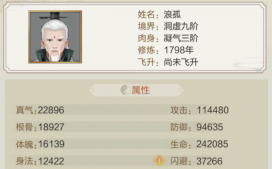首先,我们看看关于重载,和覆盖(重写)的简明定义:
方法重载:如果有两个方法的方法名相同,但参数不一致,哪么可以说一个方法是另一个方法的重载。
方法覆盖:如果在子类中定义一个方法,其名称、返回类型及参数签名正好与父类中某个方法的名称、返回类型及参数签名相匹配,那么可以说,子类的方法覆盖了父类的方法
我们重点说说覆盖问题,以如下代码为例:
|
1
2
3
4
5
6
7
8
9
10
11
12
13
14
15
16
17
18
19
20
21
22
23
24
|
public class People { public String getName() { return "people"; } } public class Student extends People { public String getName() { return "student"; } } public static void main(String[] args) { People p=new People(); System.out.println(p.getName());//运行结果为people Student s=new Student(); System.out.println(s.getName());//运行结果为student People pp=new Student(); System.out.println(pp.getName());//运行结果为student } |
上述结果说明:student类的getName方法成功覆盖了父类的方法
我们再来看看变量的覆盖:
|
1
2
3
4
5
6
7
8
9
10
11
12
13
14
15
16
17
18
19
20
21
22
23
|
public class People { protected String name="people"; } public class Student extends People { protected String name="student"; } public static void main(String[] args) { People p=new People(); System.out.println(p.name);//运行结果为people Student s=new Student(); System.out.println(s.name);//运行结果为student People pp=new Student(); System.out.println(pp.name);//运行结果为people } |
通过运行结果我发现:变量的覆盖实际上与方法的不尽相同。
用我自己的话说:变量的覆盖最多只能算是半吊子的覆盖。
要不然,向上转换与不会发生数据丢失现象
|
1
2
|
People pp=new Student(); System.out.println(pp.name);//运行结果为people |
就我个人的经验来说:变量的覆盖很容易让人犯错误.让人感觉又回到了C++的继承[这里不是指C++带virtual的继承]
最后我们再来看一段代码:
|
1
2
3
4
5
6
7
8
9
10
11
12
13
14
15
16
17
18
19
20
21
22
23
24
25
|
public class People { protected String name="people"; public String getName() { return name; } } public class Student extends People { protected String name="student"; public String getName() { return name; } } main(String[] args) { People p=new People(); System.out.println(p.getName());//运行结果为people Student s=new Student(); System.out.println(s.getName());//运行结果为student People pp=new Student(); System.out.println(pp.getName());//运行结果为student } |
显然,如此的覆盖,才是对我们更有用的覆盖,因为这样才能达到:把具体对象抽象为一般对象的目的,实同多态性
以上只是我个人的看法,有不对的地方欢迎指出来讨论。





